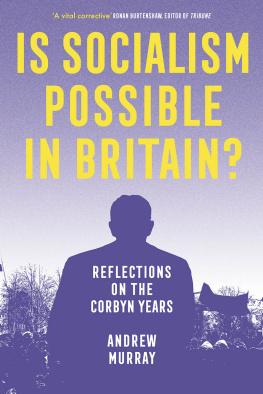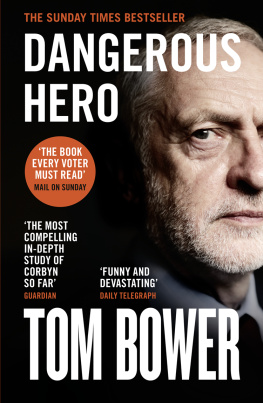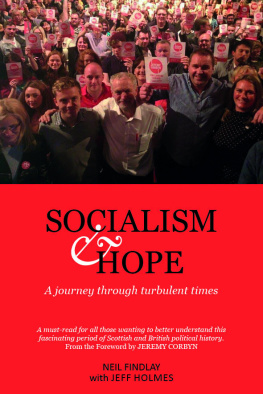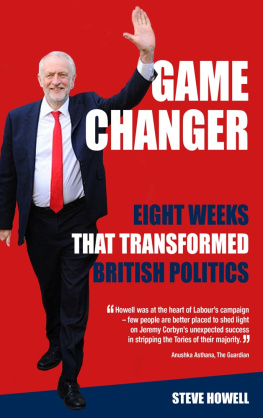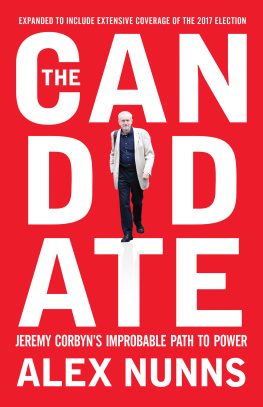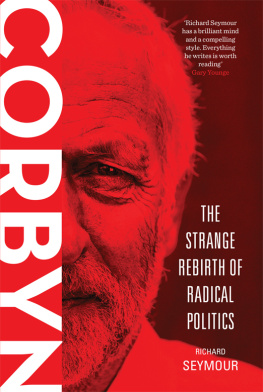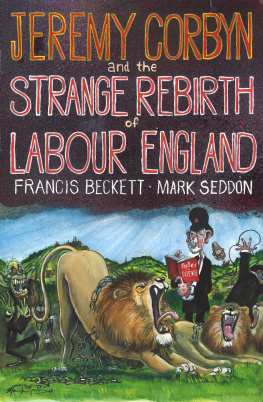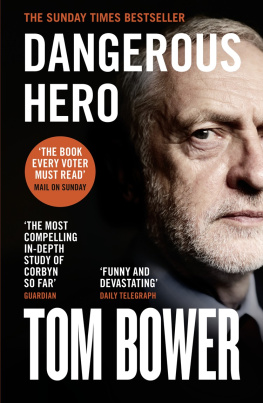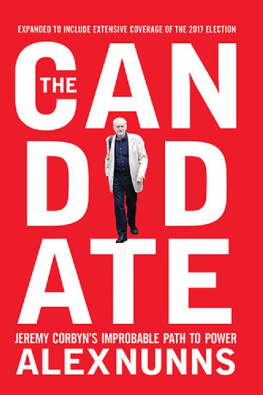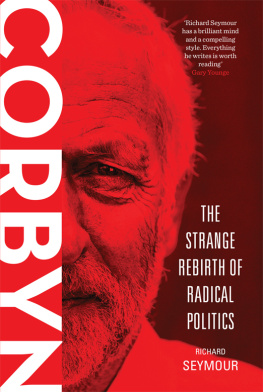For my family and all those who kept me
grounded while making all of this possible.
For the future.
I NTRODUCTION
A S TRANGE B EGINNING
So, what do you want to do when youre older? asked the prime minister. Well, I want your job, I shot back. Aged only nine, I had somehow managed to find myself attempting to usurp Tony Blair from office in the final days of his administration.
I later discovered that forty years prior to this moment, a young Bill Clinton was snapped in a similar scenario during a meeting with President Kennedy in the White House Rose Garden. Though my political ambition at the time was no more developed than having a quixotic desire to end world hunger, as with Clinton, a handshake inspired me to pursue a career in politics. I often wonder if Blair the man who stood me in front of him for a photograph after he said he would need it just in case I ever did become prime minister has ever seen any of the numerous interviews I have given, berating him as a figure of a bygone era. I doubt he has, but I am sure that he may regret what he started when he wished me the best of luck with my ambition.
My interest in politics from this young age has always been the cause of some fascination to the people who were aware of it. From the primary school teachers who would scribble remember me when you are prime minister! at the end of my annual school reports, to the senior politicians to whom I would write on a regular basis, there has always been a baffled air of ignorance surrounding the political engagement and opinions of young people despite the goodwill and encouragement of those I have mentioned. For so long, politics has been an area of life that as far as the adult world was concerned we young people did not really belong in.
But, within my own family, my ardent interest in politics was viewed simply as second nature. I remember my mum preparing a den for me when I was eight years old, so that I could pull an all-nighter as the 2005 general election results rolled in and the Labour Party was returned to power for a historic and record-breaking third term. I was even allowed to have the next day off from school to recover bunking off never came into it.
My parents were not particularly interested in politics themselves. My mum and dad met when they were both at school and their first child, my eldest sister Demi, was stillborn when my mum was just sixteen. Until they separated a few years ago, we were a typical working-class family with our own share of joys and struggles. My dad was a plumber and my mum had worked in a range of jobs, from a make-up desk in Debenhams to an events organiser who worked with the likes of the Sugababes and Status Quo. Our familial engagement with politics was practically nil. My dad detested politicians, the political system and everything that he believed it stood for. My mum voted more out of a loyalty to the Labour Party than any real passion for the positions that the party espoused.
However, I would be lying if I said it was the handshake of the formidable Tony Blair that ignited the inspiration for my political ambition. Instead, it was an even more towering figure despite standing more than half a foot shorter than me these days that first piqued my interest in the world of politics. Though I was not around at the time that my grandparents Roland and Linda Hurst were active in our local Labour Party, the stories I have been told of my granddads leadership of the city council helped to shape my early understanding of politics.
When he lent me his recording of the 1997 general election coverage, I was gripped. Their tales of how they had danced until the early hours of the morning at Lincolns Labour Club (Grafton House), as they believed Labours landslide would enable them to change the world, inspired me. I recall watching the Portillo moment and the point at which Tony Blair declared his new dawn to a crowd of thousands. I remember waking up, after momentarily falling asleep, to the sight of Blairs limousine travelling back from the palace to begin the work of government. Though just a year old when all of this happened, and eight at the time of watching it, I have always felt like I was there. My gran often told me that when my granddad was elected to Lincoln City Council, he was motivated by a belief that he would change the world. My interest in politics came from this very simple fact; I remember thinking: Thats exactly what I want to do.
Like my grandparents, I have always believed that politics exists as an arena for change it is a vocation where the desire for change can actually be put into practice. It was not a passion for politics that brought me to believe in this, but rather a passion for change that brought me to politics. I always winced at the criticism that such a view was nave, that all politicians were the same and that politics seldom changed anything.
Despite what some say, I believe that politics has never been a distant concept for people my age. I was not born into a political dynasty or forced into a particular party. Most of my political beliefs were formed while working for 3.50 an hour at Sports Direct on a zero-hours contract as I tried to complete my A-Levels. Dealing with the humiliation of being practically strip-searched upon leaving work every evening is a sad reality for many working-class young people trapped in uncertain and precarious employment. Though some on the right believe that the young will abandon their socialism once in the workplace, it was this experience that enthused a spirit of radicalism within me.
My views have also been shaped by the accumulation of 54,000 worth of tuition fee and maintenance debt for having the audacity to pursue a university education. They have been formed by the conversations I have had with those struggling to get by, with nurses forced to use food banks and with those who, in 2017, are forced to sleep rough on the streets of our country. These are events and conversations that many of us engage with at some point in our lives if our eyes are open. In this sense, politics remains an essential part of all of us, regardless of age.
Yet until the leadership election that saw Jeremy Corbyn take charge of the Labour Party in September 2015, we had seen very little interest shown in the views of young people, and that remained true for much of the period that followed up until the 2017 general election. Rather than being interested in where the Labour leaders support comes from, or why his appeal has extended well beyond the typical Labour Party member, it has been easier for an establishment clique to laugh. As Janan Ganesh of the Financial Times so elegantly put it: You can do an analysis of Corbyn and his movement (I have done it) but the essence of the whole thing is that they are just thick as pigshit.
But while the establishment mocked, I have watched and participated in this phenomenon with a keen interest that has gone beyond partisan belief. At the time of Corbyns first leadership victory, I was nineteen years old. I was about to begin my second year at the London School of Economics. Little did I know that I would also be embarking on a political journey of my own, regularly contributing at the Independent and the New Statesman as one of the few pro-Corbyn commentators. Though decried as Corbyns fanboy and a number of other adoring names, my belief then and now that he would broaden Labours appeal has been proven correct. Rather than the product of misguided idolatry or hero worship, as my critics painted it, my belief in Corbyn came from my being rooted in the class and community of which I am proud.


